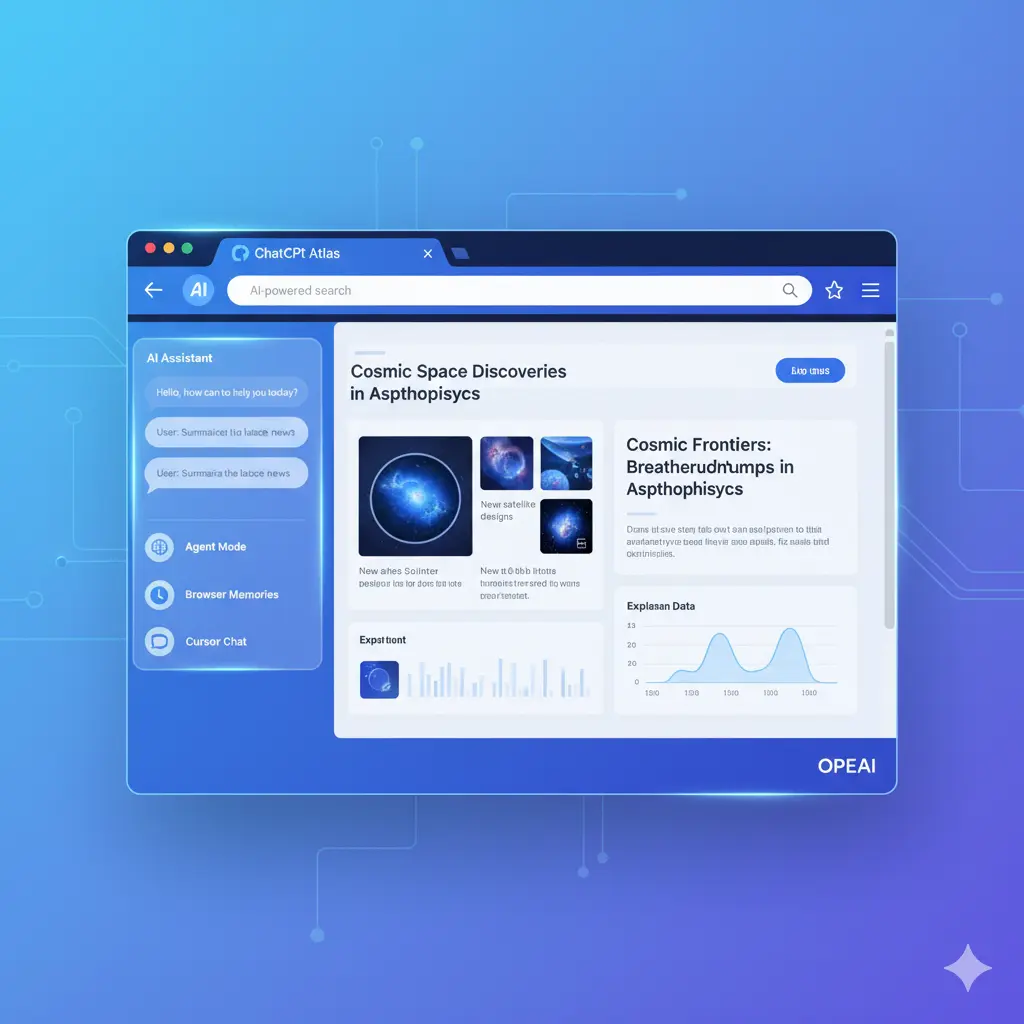OpenAI has officially launched its new AI-powered web browser, ChatGPT Atlas, marking an ambitious challenge to Google’s dominance in web browsing. This innovative browser, initially available on macOS with Windows, iOS, and Android versions forthcoming, integrates ChatGPT directly into the browsing experience to transform how users interact with the internet.
Built on the open-source Chromium engine, Atlas incorporates a persistent AI assistant sidebar that understands the content on any web page automatically, eliminating the friction of switching between tabs or copying and pasting between apps. This AI integration allows users to have natural language conversations, ask questions, receive contextual answers, and request help with complex tasks right inside the browser without leaving their current page.
One of the browser’s standout features is “Agent Mode,” available to ChatGPT Plus and Pro subscribers, which allows the AI to autonomously perform multi-step tasks such as filling forms, booking appointments, and managing online shopping carts. This feature automates workflows that traditionally require multiple manual steps, enhancing productivity but currently remains behind a subscription paywall.
Another innovation is “Browser Memories,” an opt-in, privacy-controlled memory system that retains browsing context from previous sessions. This persistent context makes the ChatGPT assistant more personalized and efficient over time by recollecting past interactions, relevant data, and user preferences, thus providing continuity in the browsing experience.
Atlas also introduces features like “Cursor Chat,” which allows inline text assistance on any editable part of a webpage, enabling users to polish writing, rewrite content, or change tones directly within text fields and forms. Additionally, its “Smarter Searches” system facilitates question-based searching and iterative query refinement with the ability to pivot among links, images, videos, and news in a seamless manner.
According to OpenAI CEO Sam Altman, “AI represents a once-a-decade opportunity to rethink what a browser can be.” Atlas is designed not just as a traditional browser but as an AI-native platform reshaping how people find information and complete tasks online. Unlike the conventional tab-based interface, Atlas aims to make browsing a more interactive, conversational experience.
OpenAI’s entry is noteworthy against the backdrop of Google Chrome’s long-standing market dominance, holding about 72% of the browser market worldwide as of late 2025. Google’s own AI-enhanced features in Chrome have pushed the browsing experience forward, but OpenAI’s Atlas attempts to leap beyond incremental updates by making AI the core browsing element.
Despite its promising features, industry analysts view Atlas as an evolutionary step rather than a revolutionary one, joining a crowded field of AI browsers that includes competitors like Perplexity’s Comet and The Browser Company’s Dia. While technically solid with seamless AI integration, questions remain about Atlas’s adoption and whether it can carve out a significant user base in a well-established market dominated by major tech giants.
Concerns about security also arise with the integration of AI agents directly into browsing, as these agents could be vulnerable to malicious prompts embedded in web pages. OpenAI has emphasized privacy controls and opt-in mechanisms to mitigate these risks, but the challenge of preventing prompt injection attacks remains a significant issue across AI-enhanced browsers.
Atlas is free to use for macOS users at launch, with feature restrictions for free-tier users. OpenAI plans broader platform support soon, aiming for a gradual rollout that will allow more users to experience an AI-centric browsing paradigm.
In summary, OpenAI’s ChatGPT Atlas represents a bold attempt to redefine the web browser by embedding conversational AI into every aspect of web interaction. Its features like contextual chat assistance, autonomous agent mode, and browser memories offer a glimpse of the future of browsing where AI aids productivity and enriches user experience. While it faces uphill competition and skepticism about its ability to significantly disrupt Google’s Chrome, Atlas stands out as a major milestone in bringing next-generation AI directly into how people engage with the Internet.
For more such updates and latest news on cars and bikes stay connected to times.motormitra.in
Thank you ..
Also Read – 6+ Upcoming Midsize ICE & Electric SUVs in India (Next 12 Months)



